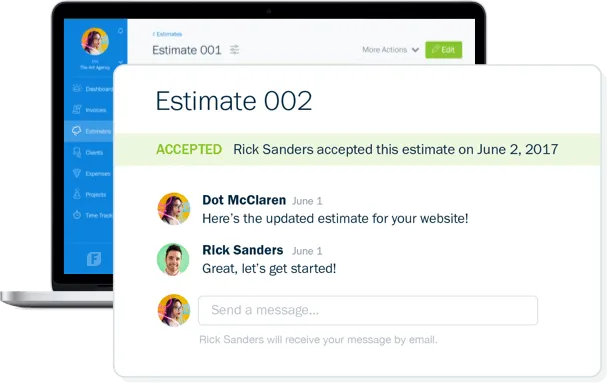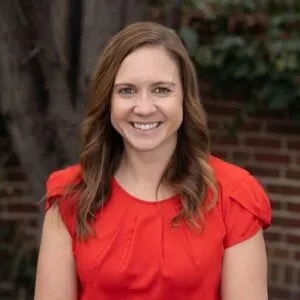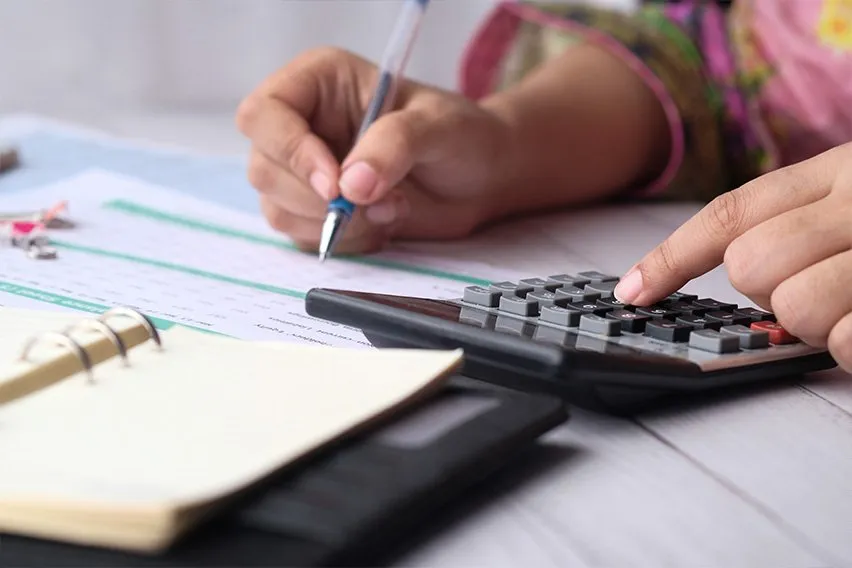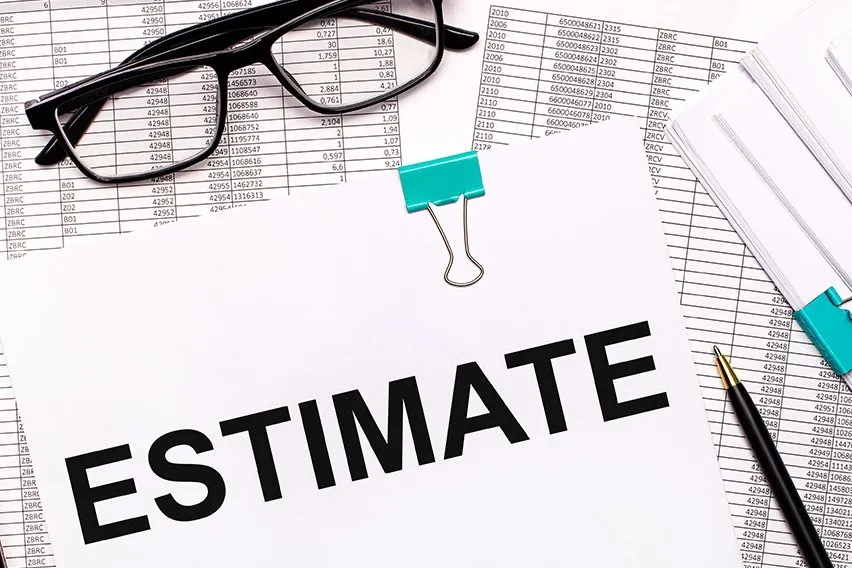How Much Do Painters Charge in 2025?

Professional house painters typically charge an average of $3 to $6 per square foot, $20 to $50 per hour, or $200 to $500 per day. The average cost to paint a 10-foot by 12-foot bedroom is $391 for just the walls or $815 for a full paint job that includes ceiling, walls, baseboards, and trim.
Costs for interior house painting can vary depending on the experience level of the painters, the complexity of the job, and your location. It’s important to create accurate estimates to ensure that customers understand the cost of house painting and all labor, materials, and prep costs that are involved.
Key Takeaways
- Common ways to charge for painting include per square foot, per hour, per room, and per day.
- Average costs vary depending on the painter’s experience level, type of job, season, and location.
- Basic interior painting typically costs $3 to $6 per square foot.
- Extra prep work like repairing drywall or removing mold will increase costs.
Table of Contents
- How Much Do Painters Charge per Square Foot?
- How Much Do Painters Charge per Hour?
- How Much Do Painters Charge per Room?
- How Much Do Painters Charge per Day?
- How To Estimate Painting Jobs
- FreshBooks Makes Estimating and Invoicing Easy
How Much Do Painters Charge per Square Foot?
The average cost to paint the interior walls of a home ranges from $1 to $2 per square foot. This estimate typically includes 2 coats of paint on a clean interior wall. If you include ceilings, trim, and baseboards, the average cost for general interior painting increases to $3 to $6 per square foot.
Painting costs rise if you need to paint difficult surfaces like bricks or textured walls, or if you need to add in trim, baseboards, and other extras. Painting costs also vary by location and the experience level of the painter.
The following table includes an overview of average painting prices per square foot for professional interior painting and exterior paintwork:
| Surface | Average Cost per Square Foot |
| General interior painting | $3 – $6 |
| Interior walls only | $1 – $2 |
| Trim and baseboards | $1 – $4 |
| Crown molding | $1.25 – $3 |
| Kitchen cabinets | $3 – $10 |
| Ceilings | $0.75 – $1.50 |
| General exterior painting | $3 – $6 |
| Deck | $2 – $5 |
| Fence | $2 – $14 per linear foot |

How Much Do Painters Charge per Hour?
Professional painters typically charge between $20 to $50 per hour for general interior painting. If you’re looking for specialty painting like murals, costs can go as high as $70 or more per hour. Painting costs vary depending on the painter’s productivity as well as their location and type of paint job.
Lower productivity painters often charge around $27 per hour, while higher productivity general painting averages $47 per hour. Costs may also vary depending on whether the work is indoors or outdoors—outdoor painting costs are also subject to seasonal variability and are usually higher in cold or wet seasons.
| Painter Productivity | Average cost per hour |
| Low | $27 |
| Medium | $36 |
| High | $47 |
| Specialty | $70 and up |
How Much Do Painters Charge Per Room?
The average cost to hire professional painters to paint a bedroom ranges from $800 to $1,200. This includes painting the baseboards, trim, door, and ceiling. For bathrooms, the average cost is $300 to $500, and for main rooms and living rooms, it is $1,000 to $3,000.
Painting costs per room vary based on the size of the room, as well as elements like high ceilings, molding, and details that may increase work time. The following table shows the average costs per room for different types of rooms, with costs for simple wall painting as well as all-inclusive interior painting costs.
| Room | Walls-Only | Full Painting (including walls, ceiling, baseboards, trim, and doors) |
| Bathroom | $110 | $427 |
| Kitchen | $181 | $548 |
| 10’ by 12’ bedroom | $391 | $815 |
| 14’ by 16’ bedroom | $744 | $1,285 |
| Living room | $260 | $1,015 |
| Open-concept basement room | $545 | $2,919 |
How Much Do Painters Charge Per Day?
The average cost to hire a painter is between $200 to $500 per day. How much painters charge depends upon their productivity level, your location, and the type of painting work—interior, exterior, or specialty.
Professional painters will typically be able to paint anywhere between 150 and 350 square feet per hour. In a typical 8-hour workday, this means they’ll be able to cover an average of 1,200 to 2,800 square feet of paintable area.
How to Estimate Painting Jobs
Creating accurate estimates is key to ensuring customer satisfaction and getting paid properly for your work. The following steps offer an outline for estimating the cost of painting jobs:
1. Measure Paintable Area
Begin by measuring the area you’re planning to paint. For an interior painting project, multiply the height by the width of each wall, then add all the walls together to calculate the total paintable area. Remember to include the ceiling if this is also being painted. Finally, subtract any surfaces that you won’t be painting, such as windows and doors.
You’ll follow a similar process for outdoor painting. Measure the height of the wall space from the foundation to the roof, then measure the width of each wall and multiply the height by the width. Add any extra areas like decks and subtract windows, doors, and unpainted areas.
2. Calculate Paint Costs
The average cost for interior paint is between $20 to $60 per gallon, with exterior paint costing roughly 25% more. Paint costs vary depending on type, quality, and brand.
A gallon of paint usually offers one coat of paint for about 400 square feet of paintable area, and most bedrooms require 2 to 3 gallons of paint. Professional painters can usually purchase paint at wholesale prices, meaning they’ll save roughly 30% compared to shelf prices at a typical home improvement store.
Other factors that influence the cost of paint include the type of finish and whether you’re using a 2-in-1 paint primer or if you need to purchase a separate primer.
3. Calculate Painting Materials Costs
The average cost of painting materials and supplies is between $50 to $100, not including the paint itself. The exact cost required may vary depending on the job—for example, outdoor painting may require weather-resistant materials, and larger jobs may need extra materials.
You’ll need the following materials for a painting job:
- Primer
- Caulking
- Tape
- Masking paper
- Masking plastic
- Masking tape
- Sandpaper
- Scrapers
- Pans
- Buckets
- Brushes
- Drop cloths
- Ladder
- Paint roller
- Pressure washer
4. Calculate Labor Costs
As noted above, painters typically charge an average of $20 to $60 per person per hour for labor. Price variations depend on the house painter’s experience level, the difficulty of the job, and your location.
Painting the exterior of a 2,500-square-foot house usually requires 1 to 2 full 8-hour workdays with a crew of 2 to 3 painters. More efficient painters will be able to paint more quickly, but they’ll also typically charge more per hour.
5. Lead Paint Testing and Removal
Homes built before 1978 have a high risk of containing lead-based paint. It’s essential to test for lead paint before beginning a new paint job. Lead paint testing costs an average of $300. Professional painters often perform these tests and then charge the customer.
If lead paint is found, painters must follow the appropriate health and safety processes for removal. Removing lead paint costs an average of $14 per square foot, whereas lead paint encasement (which is the preferred process for addressing lead paint on exterior walls) costs $5 per square foot on average.
6. Prep Work
A typical painting estimate includes standard prep work like basic sanding and cleaning. However, sometimes your home needs a little more attention. If it’s time to remove those dated popcorn ceilings, or if more extensive repairs or preparations are required, it can drive up the cost of a painting job.
If interior painters are required to move furniture or do additional cleaning or repair, these will increase the time and cost of prep work. Some examples include:
- Repairing drywall: $40 to $100 per hour
- Removing wallpaper: $1 to $2 per square foot
- Cleaning mold and mildew: $500 and up
7. Specialty Painting
Some types of specialty painting, like adding stripes or applying textured or metallic paint, can be done by most professional painters. More advanced projects such as murals and trompe l’oeil (a visual technique to create a false effect) require a specialized artist.
Mural painting costs an average of $50 to $100 per square foot, while trompe l’oeil ranges from $50 to $150. Costs vary significantly based on the artist’s experience and the complexity of the specialty painting.

Accurately estimating painting jobs is an essential component of running a successful painting business. FreshBooks estimating software offers a comprehensive solution for generating professional painting estimates so you can communicate all your costs to the customer.
Explore free painting estimate templates to discover how professional estimates can help you build a strong customer base and streamline your payment process.

FreshBooks Makes Estimating and Invoicing Easy
Creating accurate estimates and invoices is key to making a profit with a small painting business. Whether you prefer to charge by the hour, by square foot, or by room, a free painting invoice template makes it easy to break down all your professional painting costs and charges.
Once you’ve completed the job, FreshBooks invoicing software offers a straightforward way to invoice your clients and collect payment. The free invoice generator lets you create custom invoices to find the right fit for your business, while the software enables you to generate more invoices, send reminders, and collect payments for an efficient all-in-one system.
Reviewed by
Michelle Payne has 15 years of experience as a Certified Public Accountant with a strong background in audit, tax, and consulting services. Michelle earned a Bachelor’s of Science and Accounting from Minnesota State University and has provided accounting support across a variety of industries, including retail, manufacturing, higher education, and professional services. She has more than five years of experience working with non-profit organizations in a finance capacity. Keep up with Michelle’s CPA career — and ultramarathoning endeavors — on LinkedIn.
RELATED ARTICLES


 How Much Do Web Designers Charge? A Pricing Guide
How Much Do Web Designers Charge? A Pricing Guide How to Write an Estimate in 5 Steps: A Small Business Guide
How to Write an Estimate in 5 Steps: A Small Business Guide 5 Simple Steps to Making Successful Bids: Tips for Small Businesses
5 Simple Steps to Making Successful Bids: Tips for Small Businesses How to Estimate Projects: Top 5 Project Estimation Techniques for Small Businesses
How to Estimate Projects: Top 5 Project Estimation Techniques for Small Businesses Free Estimates: When a Contractor Should Offer Them (And When to Charge a Fee)
Free Estimates: When a Contractor Should Offer Them (And When to Charge a Fee) Is A Quote A Contract: A Primer for Small Businesses
Is A Quote A Contract: A Primer for Small Businesses